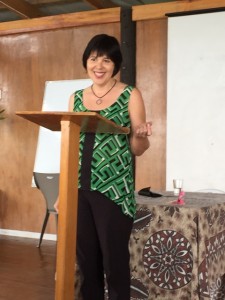There is no quick, elevator-pitch-style, answer to this question. Truth is, editing isn’t very sexy to write about, or to do for that matter, but it is important. When I was invited to speak at the Oxbridge Forum held at the delightfully retro Daku Resort in Fiji last year, I realised it was the perfect moment to address this question in full in front of a captive audience. The following is a taste of my 30-minute speech. To edit literally means to remove, take away, shorten or make less. In practice, an editor deletes or refines text that is superfluous, unintended, unexplained, unclear, libellous or just plain embarrassing. At the same time they correct the grammar, spelling and expression. A good editor is a generalist, someone who knows who Miley Cyrus, Jackson Pollock and Mikhail Gorbachev are and how to spell their names. Above all, an editor needs to be a confident decision maker who has the courage of their convictions. In the context of magazine editing, an editor needs to be an arbiter (oft-times creator) of tastes and trends. A fiction editor, on the other hand, should be the author’s best friend, their coach, confidante and partner on what is, after all, a very personal journey. All editing involves the exercise of judgement, which is why I’m ending this post now!
